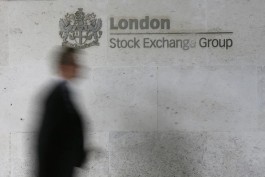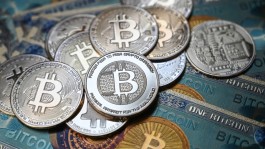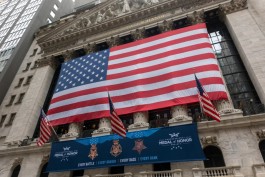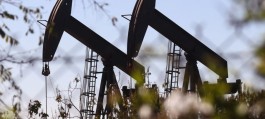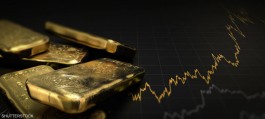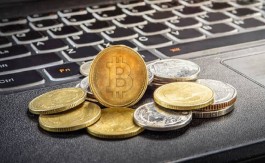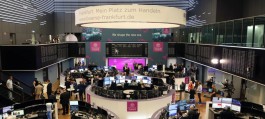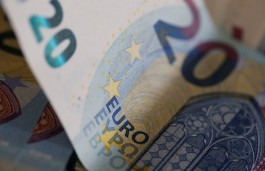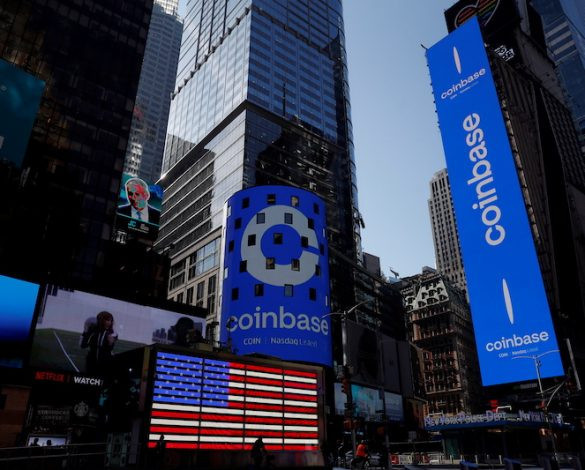US stocks shrugged off warnings of slowing growth and data showing slowing manufacturing activity, and rose in thin trade ahead of the Independence Day holiday.
In a short trading session, ending at 1 pm on Monday in New York, the S&P 500 rose 0.1%, led by Tesla shares.
The electric car maker's share jumped 6.9% after announcing record quarterly sales, which helped lift the shares of its competitors and battery suppliers.
Banking shares jumped, including Bank of America shares. The Nasdaq 100 rose 0.2%, holding on to gains after posting the best first-half performance in its history.
Record sales of Tesla and BYD cars in the second quarter
Investors are tempering their expectations for the performance of stocks in the second half of the year after making strong gains so far, and although central bank officials stuck to their hawkish rhetoric, indicators of moderation in the level of inflation in the United States contributed to achieving significant gains in technology stocks.
However, if the economic crisis does not materialize, and political crises can be avoided, the inflation rate may drop to a level of 3% before resuming its rise, according to Jim Bianco, president and founder of Bianco Research, and this may mean an additional increase in prices. Benefit.
Bianco said on Bloomberg TV: If inflation bottoms out at 3% and starts to pick up, the Fed won't accept it, and it's going to be two, if not three, rate hikes as we predicted for the rest of the year.
Manufacturing activity decreased
The manufacturing sector painted a bleak picture as US factory activity fell to its weakest level in more than three years. Production and new orders data also indicated a decline.
Investors are looking forward to the upcoming earnings season and additional data, such as the non-farm payrolls on Friday, for signs of the state of the economy.
If the FOMC is going to raise rates one, two or not at all in their monetary austerity campaign, that will be affected by the upcoming data, said Ian Lingen, strategist at BMO Capital Markets. He expected that the data that will be published this week will have a greater impact on the Federal Reserve's interest rate decision in September compared to the July decision.
He wrote in a note: The Fed is on its way to another rate hike, unless there is a significant downward shift in data achieved with a severe crisis in financial conditions.
Despite a positive start to the year for stocks, there are signs of cracks beneath the surface. The inversion of the US Treasury yield curve has intensified, indicating that investors expect Fed policy to put pressure on future growth. The yield on the two-year note briefly exceeded the yield on the 10-year note by as much as 110.8 basis points, according to data compiled by Bloomberg.
Prepare for underperformance
Given that both global and US stocks rose by more than 20% from their lowest levels in October 2022, amid a more difficult outlook for the second half, said Solita Marcelli, Americas Chief Investment Officer at UBS Global Wealth Management. We believe that investors should prepare for a weaker performance in the stock market during the remainder of the year.
“The stocks did well in the first half because the US economy hasn't experienced a recession,” said Nikolaos Panegirtzoglou, global market strategist at JPMorgan Chase.
He added that trading technology stocks turned into a painful trade for investment institutions, which made them give up. This decline in the first half creates weaknesses for the second half because it means that if a recession hits the US, there will be a somewhat abrupt repricing in the market.
Meanwhile, US crude oil prices stabilized at around $70 a barrel after the state-run Saudi Press Agency said the country would extend its unilateral oil production cut by a month, capping supply even as it is expected to be in short supply in the markets. Russia, its ally in OPEC +, announced a new reduction in exports.
Algeria joins the additional voluntary cut to support oil market stability
This week, all eyes will be on US Treasury Secretary Janet Yellen's visit to Beijing, which begins on July 6, as the world's two largest economies look to repair relations after a series of bilateral tensions.
















